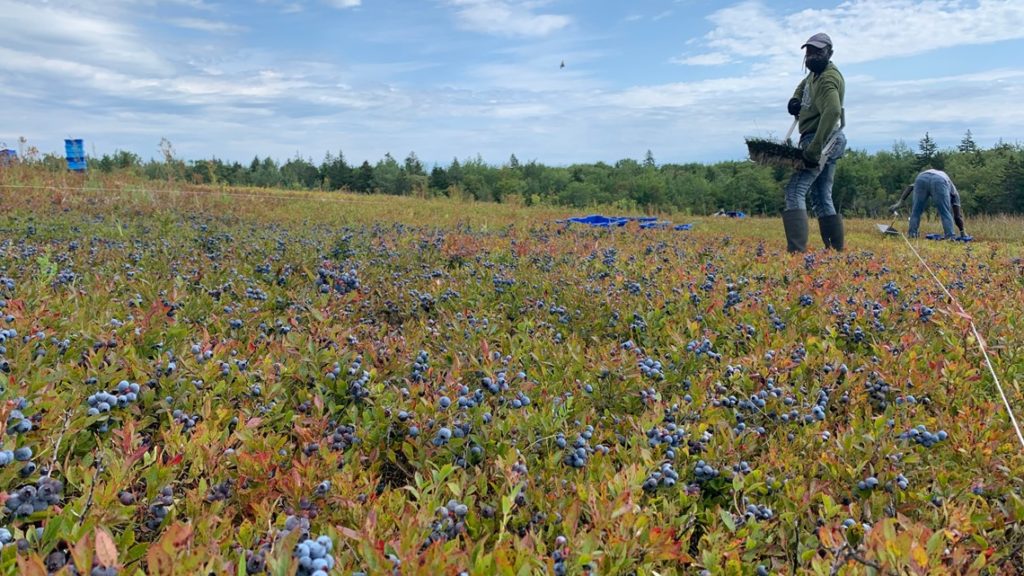
Wicked Wild has clearly defined an environmentally sustainable path to revitalize its farm. We will mechanize its harvest, institute sustainable farming practices, and process its own berries. The fields will be brought back into full organic production by removing boulders and leveling the fields to allow the use of mechanical harvesting in place of hand raking. Flail mowing will eliminate the environmentally damaging practice of burning the fields to manage weeds and pests. Appropriate irrigation and the addition of environmentally sustainable biochar as a soil amendment will produce more consistent yields in years of minimal rainfall. Assisted pollination will ensure the health and wellbeing of the plants as well as the bee population. The addition of a processing line will allow more options for direct-to-consumer distribution.
These advances in farming practices will bring the fields into maximum production:
- Sustainable farming practices
- Removal of boulders and leveling of fields: Clearing and leveling the fields is the critical first step towards the introduction of mechanical harvesting and flail mowing. That work is currently underway – clickable link to “what’s happening in our fields”
- Introduction of mechanical harvesting: Once the fields are leveled, mechanical harvesting can be introduced.
- Introduction of flail mowing: Wild blueberry fields have historically been burned every other year to control weeds and pests. This traditional burning creates environmental pollution which adds to the climate change that is impacting the blueberry industry. Flail mowing eliminates the pollution emitted during burning and is a more environmentally friendly method of weed control.
- Use of biochar: Sustainable biochar has many benefits to the health of both the plants and the soil and shows tremendous promise for the wild blueberry industry. Biochar is sustainably sourced from crop and forestry residues and has been demonstrated to increase crop yields by capturing and releasing water during drought conditions. It increases microbial activity by providing the proper environment for microbes, which are beneficial for plant development. Biochar blended into soil sequesters carbon, reducing net CO2 emission.
- Application of organic farming practices: Wild blueberries are a naturally low-input crop that requires minimal management. Our blueberries will meet MOFGA and USDA certified organic standards.
- Use of efficient irrigation methods: Managed irrigation, used only as needed, will preserve water resources while supplying plants with the required amount of water for maximum crop yield.
- Addition of protected honeybee colonies: Bees are essential to the pollination of the wild blueberry blossom, which results in fruit production. Native bee populations worldwide are in general decline. As the number of native bees decreases, the need to supplement their numbers increases. Some fields have shown large increases in yield when the number of bees present is supplemented with protected hives. Wicked Wild will take a native bee survey, then add honeybee colonies as necessary to support the local bee population. We will eliminate any chemicals that would negatively impact the bee population as part of its commitment to organic farming
